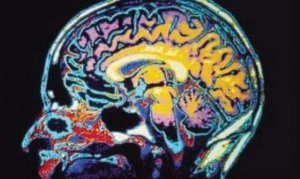Need Immediate help? Call 717-397-1010
After Hours Call / Text 717-471-2168
Need Immediate help? Call 717-397-1010
After Hours Call / Text 717-471-2168
 Post-Traumatic Stress Disorder (PTSD) can develop after a trauma in any setting. Despite this fact, not all states allow Workers’ Compensation claims based on PTSD. For the states that do, the worker must have experienced or witnessed an event that is deemed traumatic while acting the scope of employment, then show symptoms of PTSD that interfere with the ability to work in that employment. Furthermore, there must be an official diagnosis of PTSD from a certified psychiatrist or psychologist.
Post-Traumatic Stress Disorder (PTSD) can develop after a trauma in any setting. Despite this fact, not all states allow Workers’ Compensation claims based on PTSD. For the states that do, the worker must have experienced or witnessed an event that is deemed traumatic while acting the scope of employment, then show symptoms of PTSD that interfere with the ability to work in that employment. Furthermore, there must be an official diagnosis of PTSD from a certified psychiatrist or psychologist.
Some examples of what is considered a traumatic event at work include, but are not limited to:
These types of events can trigger PTSD symptoms that greatly affect ones’ ability to perform their job.
Not every traumatic event results in PTSD. On the other hand, not everyone with PTSD has been through a dangerous event. Symptoms can show up years after the event or right after it happens. Symptoms that last more than a month and are severe enough to interfere with relationships are considered PTSD.
For diagnosis, an adult must have the following for at least a month:
Re-experiencing symptoms include, but are not limited to, flashbacks where the trauma is relived, bad dreams, and frightening thoughts. Avoidance symptoms include staying away from places, events, or objects that remind the person of the event, or avoiding thoughts or feelings about the event.
Arousal and reactivity symptoms include being easily startled, feeling tense or on edge, trouble sleeping, or angry outbursts. Cognition and mood symptoms include trouble remembering important parts of the event, negative thoughts about themselves or the world, guilt or blame, or loss of interest in formally enjoyable activities.
If you are suffering from PTSD as the result of a traumatic event that happened on the job, you could be entitled to compensation. Contact our attorneys at Vanasse Law today to find out how we can help.